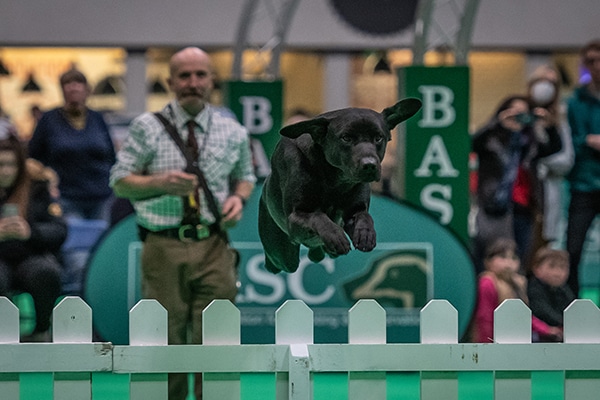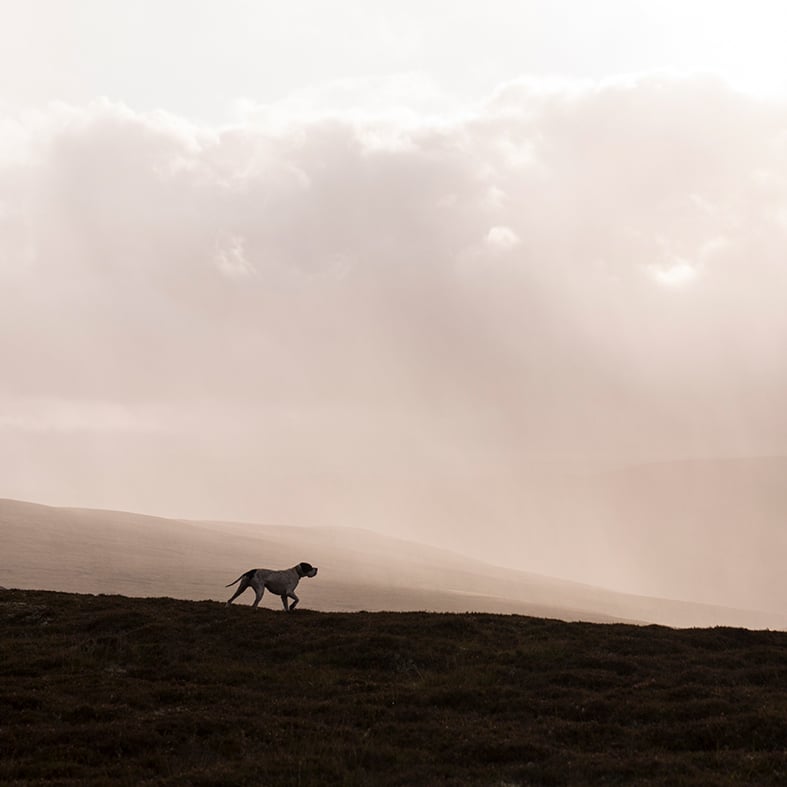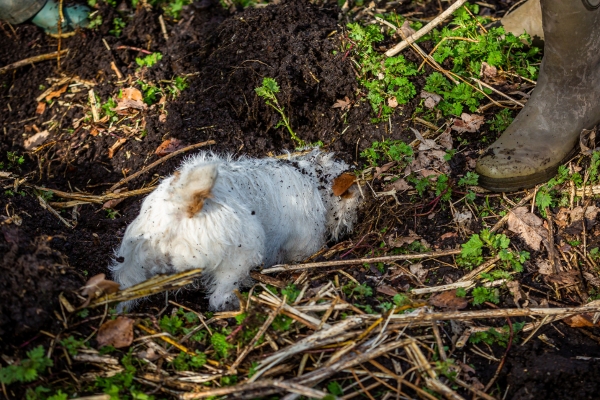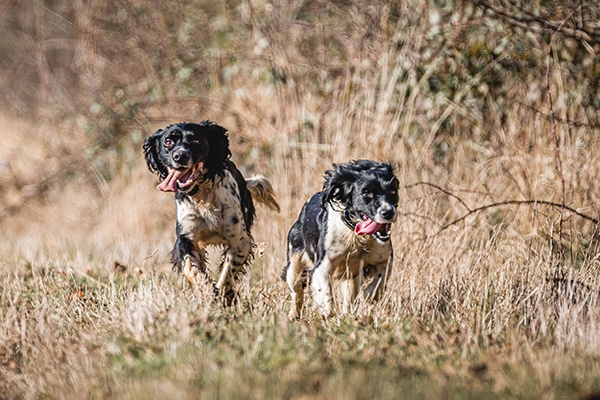
Competing at Crufts for the first time
Taking part in Crufts, particularly for the first time, is a very exciting experience and there is no need to feel intimidated by the day.
Get information on the legal shooting season for mammals and birds in the UK.
Apply for funding for your project or make a donation today
Comprehensive information and advice from our specialist firearms team.
Everything you need to know about shotgun, rifle and airgun ammunition.
Find our up-to-date information, advice and links to government resources.
Everything you need to know on firearms law and licensing.
All the latest news and advice on general licences and how they affect you.


Home » Gundogs » Gundog advice » Dog theft and lost dogs
UK dog theft has been on the rise for several years and was particularly prevalent during the Covid-19 lockdowns. The enforced time at home led to more people wanting dogs, creating high demand and resulting in increased thefts, putting the most popular breeds at risk.
Working gundogs are especially sought after. They are renowned for their good pedigree, sociable nature and are typically well-trained. All the attributes that make them indispensable for gamekeepers and those who work in shooting, also make them a high-value target to steal and sell on or breed from. Gundogs are also more likely to be kept in kennels outside or in unlocked vehicles on a shoot, making them easier targets too.
It is now a legal requirement to have your dog and for it to wear a collar with an identification tag in public places, unless under specific circumstances. Ensure your details are kept up to date so that in the event your dog is stolen or lost and then recovered, you can be contacted without delay.
There are a number of ways you can prevent or deter gundog theft, both at home or at events and shoots:
Keeping your dogs in your home is the safest place you can keep them.
If a dog is stolen from a house the perpetrator can be charged with burglary as well as theft which is an added deterrent.
If your dogs are kennelled, ensure your kennel is in close proximity to and in view of the house.
Try to minimise vehicle access to your kennels and think about the overall security of its surroundings. Is there a low fence that could be made higher? Is there anything you can do to add an extra level of deterrent to potential criminals looking to gain access?
Consider installing gate sensors or bells and motion sensor security lights.
Install a Wi-Fi camera in your kennel, enabling you to check on your dogs throughout the day and night. Prices start from as little as £25.
While dogs should never be left alone in vehicles when travelling, always make sure they are in a secure transit box that you are able to lock. Consider using alarmed padlocks and having tinted windows. These can help obscure the view of passers-by looking in.
When parking your vehicle with a dog inside, try to reverse up against a secure area such as a wall. This will make access to the back of your car or pickup much harder to gain entry to.
Avoid taking multiple dogs if they won’t be with you all day. This may not always be possible, but you should minimise the time that a dog will be alone for.
Avoid advertising what dog you have in your vehicle or at home with stickers or signs on your car.
Think carefully before posting on social media. A photograph of your dog with your vehicle registration visible or with a recognisable landmark could help a motivated thief locate your dog.
Try not to leave your dog unattended. Even if you are just popping into a shop, leaving your dog tied up or loose unaccompanied in a visible garden can create an opportunity for gundog theft.
If you’re not planning on breeding from your dog, consider having them sprayed or neutered. The majority of dog thefts are done for the purpose of breeding to maximise profits.
Consider varying the times of your walk and the routes you take with your dog. Some dogs have been targeted and snatched during walks. If you are concerned about walking your dog alone and cannot be accompanied by a friend or family member then look to invest in a personal protection alarm. These are relatively cheap devices and, unlike some other personal protection items advertised online, are legal to use anywhere.
Take regular photographs of your dog, noting particular markings and features. This will help the public and police identify your dog if it is stolen.
A litter of pedigree gundog puppies can be a high-value target for thieves. When advertising a litter of puppies for sale, it’s crucial to be vigilant of all prospective owners.
What to do if your dog is missing or considered stolen
If the dog appears to be scared or wary of you, contact the local dog warden and give them the location of the dog. Many dogs will act this way if they have been missing for a few days or more.
If you manage to secure the dog, check its collar tag if it has one or take the dog to a vet or rescue centre to be scanned for a microchip. They will then attempt to contact the owners and make arrangements for the dog to be collected.
If the dog is not microchipped or the contact details are out of date, and you have the dog in your care:
Ensure the dog is reported to the local authority.
Report the missing dog to all your local rescue centres and vets.
Spread the word on social media and in your local area, you can also register the dog as ‘Found’ on DogLost.
If you are contacted by someone claiming to be the owner, do not arrange to meet with them unless they can prove ownership. If you are in doubt, contact your local dog warden or rescue centres to assist.
Once a dog and its owner are reunited, it is important to inform those who are still looking that the dog is safe and sound. Take down posters, update databases and social media posts.
In partnership with

Taking part in Crufts, particularly for the first time, is a very exciting experience and there is no need to feel intimidated by the day.

The Hunting Act 2004 prohibits all hunting of wild mammals with dogs in England and Wales, except where it is carried out in accordance with one of the tightly drawn exemptions, which allow for certain necessary pest control and other activities to be undertaken, subject to strict conditions.

Vet Rebecca Bailey shares her essentials for a good first aid kit and some quick tips on need-to-know first aid care.
Sign up to our weekly newsletter and get all the latest updates straight to your inbox.
© 2025 British Association for Shooting and Conservation. Registered Office: Marford Mill, Rossett, Wrexham, LL12 0HL – Registered Society No: 28488R. BASC is a trading name of the British Association for Shooting and Conservation Limited which is authorised and regulated by the Financial Conduct Authority (FCA) under firm reference number 311937.
BASC Direct Ltd is an Introducer Appointed Representative of Agria Pet Insurance Ltd who administer the insurance and is authorised and regulated by the Financial Conduct Authority, Financial Services Register Number 496160. Agria Pet Insurance is registered and incorporated in England and Wales with registered number 04258783. Registered office: First Floor, Blue Leanie, Walton Street, Aylesbury, Buckinghamshire, HP21 7QW. Agria insurance policies are underwritten by Agria Försäkring.
If you have any questions or complaints about your BASC membership insurance cover, please email us. More information about resolving complaints can be found on the FCA website or on the EU ODR platform.